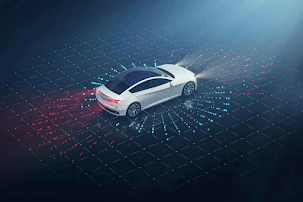How 5G impact on automotive vehicles
Introduction:
In the era of rapid technological advancement, the automotive industry is undergoing a profound transformation, driven by the convergence of connectivity, automation, and electrification. Among the myriad technologies reshaping the automotive landscape, 5G stands out as a game-changer, promising faster, smarter, and safer roads. In this blog, we explore the profound impact of 5G technology on connected cars and the implications for the future of transportation.
The Need for Speed:
Traditional cellular networks, such as 4G LTE, have served as the backbone of vehicle connectivity for years. However, as the demand for data-intensive applications in cars continues to grow, the limitations of existing networks become increasingly apparent. Enter 5G, the fifth-generation wireless technology poised to revolutionize the automotive industry. With its unparalleled speed and low latency, 5G enables seamless communication between vehicles, infrastructure, and the cloud, unlocking a world of possibilities for connected cars.Enhancing Vehicle Connectivity:
One of the most significant advantages of 5G technology is its ability to provide ultra-reliable, low-latency communication (URLLC), paving the way for real-time data exchange between vehicles and their surroundings. From traffic updates and navigation assistance to remote diagnostics and software updates, 5G empowers connected cars to stay constantly connected, ensuring a smoother and more efficient driving experience.Enabling Autonomous Driving:
Autonomous vehicles rely heavily on data from sensors, cameras, and other sources to perceive and navigate their environment. With 5G's high-speed, low-latency connectivity, these vehicles can access and process vast amounts of data in real-time, enabling faster decision-making and enhancing safety on the road. From vehicle-to-vehicle (V2V) communication to interaction with smart infrastructure, 5G technology accelerates the development and deployment of autonomous driving solutions.Transforming the Passenger Experience:
Beyond safety and efficiency, 5G technology revolutionizes the in-car experience, turning vehicles into mobile hubs of entertainment, productivity, and connectivity. With high-definition video streaming, immersive gaming, and augmented reality (AR) applications, passengers can stay entertained and productive during their journey, transforming mundane commutes into engaging experiences.Securing the Future of Transportation:
While the benefits of 5G technology in connected cars are undeniable, they also bring new challenges, particularly concerning cybersecurity and data privacy. As vehicles become increasingly connected and reliant on external networks, safeguarding against cyber threats and protecting sensitive data become paramount. Automakers, technology companies, and policymakers must collaborate to establish robust cybersecurity standards and regulations to ensure the trust and safety of connected car ecosystems.
Conclusion -
The advent of 5G technology marks a pivotal moment in the evolution of connected cars, ushering in an era of unprecedented innovation and transformation. With its lightning-fast speed, low latency, and reliability, 5G empowers connected cars to become faster, smarter, and safer than ever before. As we embrace the potential of 5G-enabled connectivity, the future of transportation is poised to revolutionize the way we move, work, and live in the world.

Comments
Post a Comment